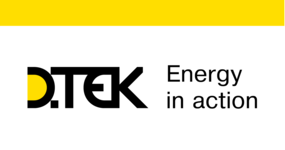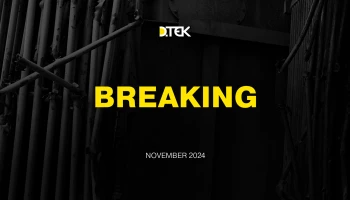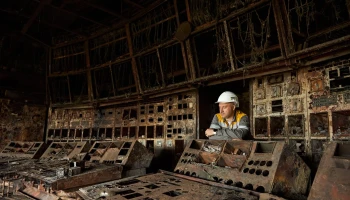DTEK CEO Maxim Timchenko gave an exclusive interview on Reuters and spoke about the hopes of Ukraine to accelerate the integration of its electric grid with Europe’s with the help of United States.
Ukraine secured an emergency connection to the European energy grid on March 16. That was less than a month after Russia’s Feb. 24 invasion, when Ukraine disconnected from the power grid connecting it to russia and belarus.
The fact that Ukraine managed to connect to the European grid “was done as a result of very, very intensive discussions with the U.S. government and with the European Commission,” and Europe’s power grid, Maxim Timchenko told Reuters last week. “From a political point of view, and also as part of technical discussion, the U.S. government plays a very significant role,” Timchenko said from Ukraine.
While Ukraine’s domestic power consumption has dropped due to the war, the country has maintained pre-war level production of power sources including coal and natural gas. The country is thinking ahead to when the war is over when it hopes to position itself as a provider of clean energy such wind and solar power, hydrogen gas produced with renewables, and perhaps in about a decade, small modular nuclear reactors, Timchenko said.
Ukraine’s plan is to start power exports to the European grid at 100 megawatts of capacity and expand that to 800 MW without the need of additional equipment. If Ukraine adds battery storage and other infrastructure, it could boost that to 1,600 MW of capacity.
“Battery storage can work now not only for us as a service provider for stability of the system inside of Ukraine, but also to provide dynamic stability for export of electricity out of Ukraine,” Timchenko said.
DTEK, Ukraine’s biggest employer with 60,000 workers, has endured harrowing losses as the war grinds on. As of last week 43 employees had been killed. Most of those were serving in Ukraine’s forces, but nine were civilians and one was killed restoring electricity supply in the Kiev region, Timchenko said. There have also been about 87 employees injured. DTEK has also has restored more than 10,000 kilometers (6,200 miles) in transmission lines.
Still, Timchenko said Ukraine hopes to bring private investment into the country to boost production of green energy, investment it hopes will be backed by political risk insurance that could come from Western development agencies.
Ukraine began installing its first grid-scale battery power storage system last year after entering a contract with Honeywell for a 1 megawatt lithium-ion system. It hopes to greatly expand that system in coming years.






